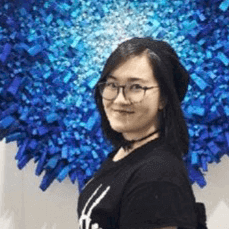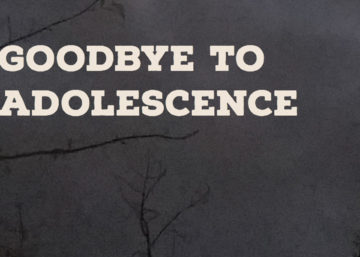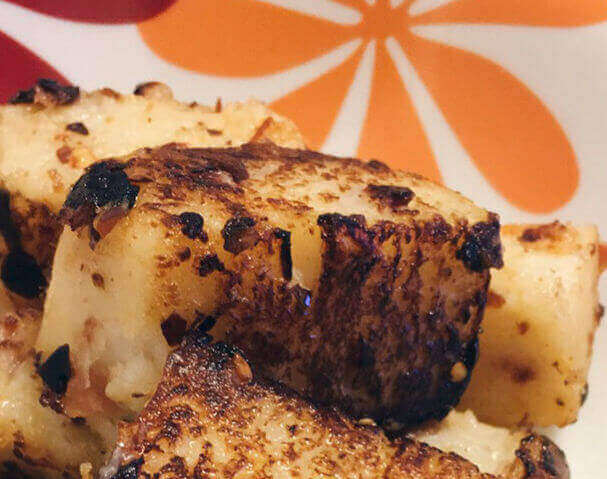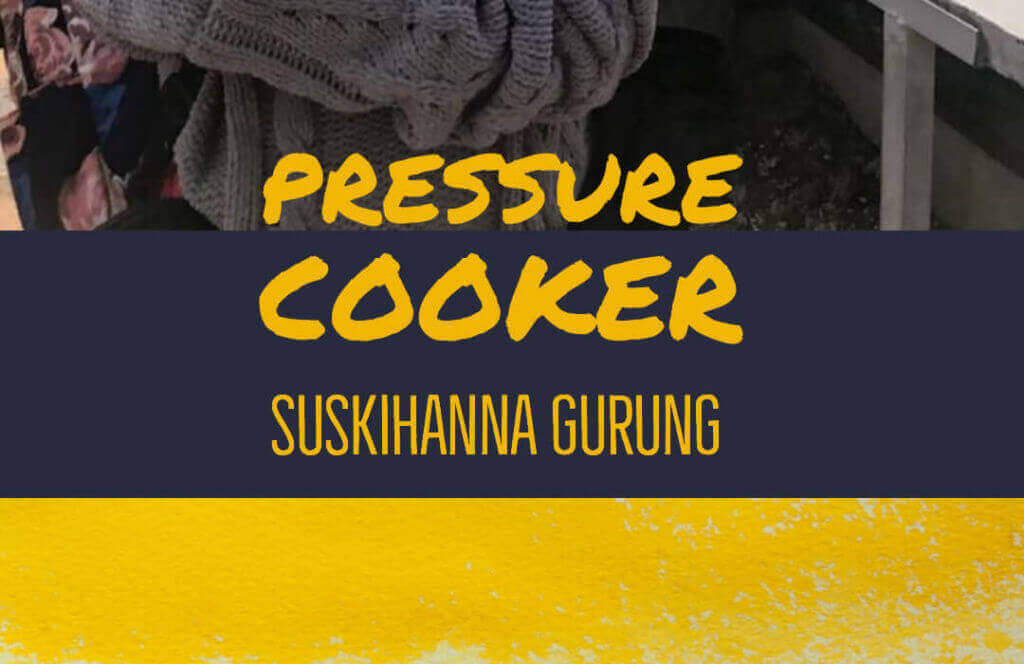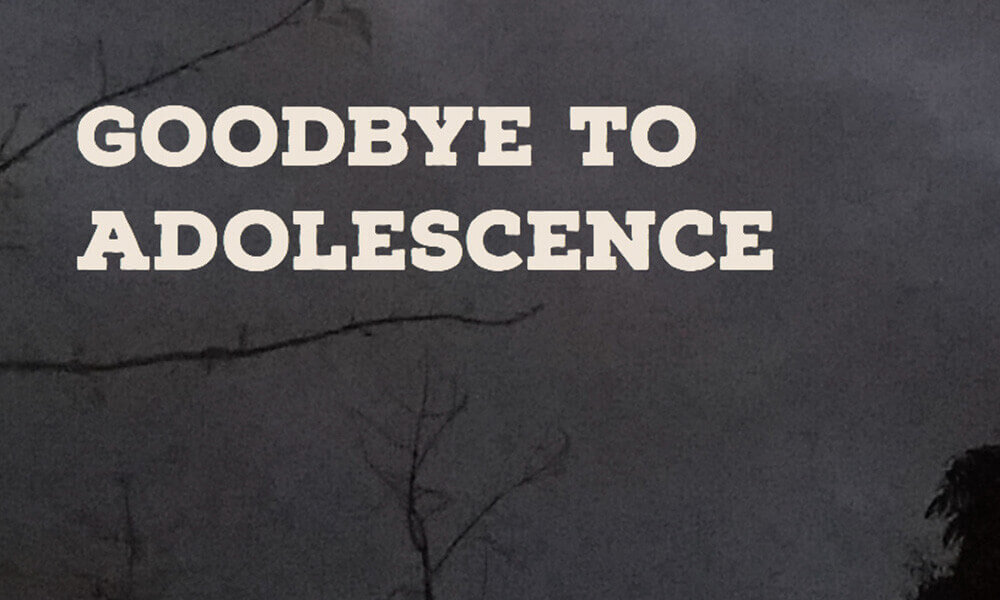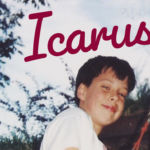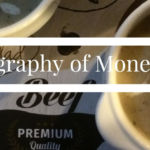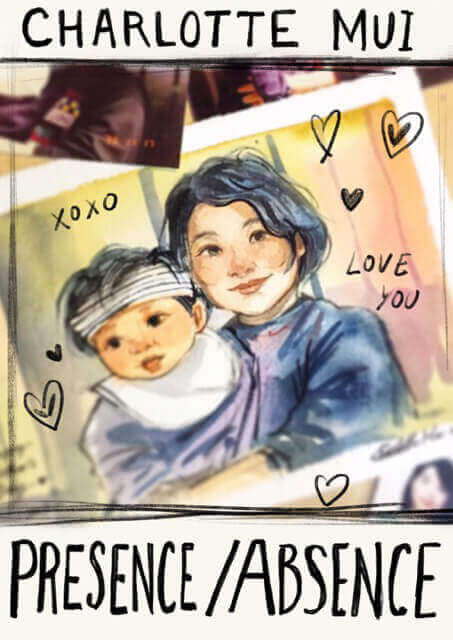
Biography and Documentary
Chapter 1
They aren’t missing out on anything. The wontons looked nothing like the shrimp and pork filled dumplings we have in Hong Kong. They were twice the usual size and looked more like Japanese gyoza than the crumpled paper ball wontons from the Guangdong province. The ‘wonton’ skins were too thick. There wasn’t any shrimp filling. None. Instead, there was corn and carrots and chicken — though Mum reckoned it was lamb. Mum took a bite from her dumpling to try it. She took another one. She wanted to make sure there wasn’t anything wrong with her taste buds. Was it that bad? She preferred the steamed buns. To me, the buns were grainy and soggy at the same time. Mum complained throughout the meal, going on about how good the raspberry tart we had earlier was instead. We were in Paris and then London for two weeks. We called it a vacation — though we both knew it was partially for my own art research.
“This is my favourite painting,” Mum says. We were drifting through the galleries at the Tate Britain. I turn away from Sargent’s depiction of Ellen Terry. His other piece, Carnation Lily Lily Rose, was on the opposite wall. It was life-sized and hung on the blue-grey wall, with smaller pieces crowding around the overwhelming ones at the centre. Mum stood in front of the towering painting. A black shadow cast on the vibrant blues and pinks, sucked into the painted garden. There were two little girls in it, dressed in flowing white dresses, lighting their Japanese lanterns, surrounded by more lanterns and flowers. Mum stayed there for at least ten minutes until I dragged her to see another piece by Sargent.
Mum was always a little indifferent to the paintings I was obsessed with. We were at the Louvre the week before for Le Brun’s Alexander the Great Cycles. Her comment was that they were huge. But the size is barely even the point of these pieces. The brushstrokes that are definitive of Le Brun’s switch in the debate of colore (colour) and disegno (design), his influence from Rubens — I’m rambling. Mum brushed me off when I rambled then too. She hates it when I talk about the 17th century French Academy. She doesn’t understand how I can love both the baroque painters on one end and somehow branch off into a debate about artists in the context of ‘gender wars.’ How can you not? Just because the ideas are from different periods doesn’t mean we can’t look at early modern art with a modern — I’m rambling again.
Mum likes to watch films and television shows, but she’s never really watching it usually. At home, she would have a laptop out to fix her work roster or do her shopping online. The television was just a blare of colours and noise to help her zone out. She prefers to watch action films like the Taken trilogy but she complains about the bland storyline of Marvel ones. She doesn’t seem to like the generic action-film motivation of “saving the world”. Her recent obsessions are Korean romance dramas with a twist — those with supernatural touches, like an innocent mermaid falling in love with a narcissistic con man, a trio of friends who have clairvoyant dreams about each other, and a romance between an alien and a superstar, are just some of the ones she binge watches. When it comes to western shows, anything that has gorgeous costumes is sure to capture her attention. She spent quite a bit of time looking at the Sun King’s snuffboxes when we were at the Louvre. She was marathoning the last season of Downton Abbey when we were in London. She liked the fantasy that the story had, not the plot — “Why watch something that’s ‘realistic’ when you’re watching it to escape real life?” When she finished looking through the gallery at the Tate, she found a corner chair that was slightly obscured by a sculpture, sat down and watched an episode on her phone while she waited for me to finish my round. The only paintings that seem to get a reaction out of my Mum are ones with cats in them. I showed her one this morning by Mary Cassatt just to make sure. In her sleepy, one-eye-open state, she said “so cute” before falling back into sleep.
Mum talks about her cat a lot. Bambi. He’s a mixed breed munchkin, though my family never figured out what sort. Judging from Uncle William’s (my second eldest uncle, yi kau fu) pastel drawing of Bambi, I’d say there’s some British Longhair in him. There was barely any hint that he was a munchkin. The light grey pastelled fur hid it. Bambi’s attention was held somewhere outside the frame. I never asked what he was staring at. I don’t think they’d remember. He’s the only cat I’ve ever heard my mother loving. He’s the only cat our family’s ever had. Unless you count the ones to keep the mice situation under control at the factory when Mum was still a girl. Bambi passed away due to a heart condition on the eve of his eighth birthday, about a decade before I was born. Whenever I ask her why we wouldn’t adopt a cat, she would always say it’s because of me. I used to be afraid of dogs until we adopted Goobie, a chestnut Pomeranian. He died at the age of eleven, four years ago. Just a month after, Goobie was adopted initially to help me cope with my irrational fear. I used to run out into the streets if I saw a dog at a distance.
Goobie wasn’t the only dog we had. Before him and before I was born, Mum took care of two Pomeranians and a Rottweiler. Chung, another chestnut Pomeranian, was my Mum’s favourite. She still tells stories about how smart he was. Mum liked to take her time before preparing to leave home. Rather than wagging his tail and bugging my Mum, pressuring her and in turn annoying her (just a bit), Chung liked to sit in front of the mirror and watch her through it. Out of the corner of his eye, Chung waited for Mum to take him out for walks. When Mum got pregnant, Chung would lay his head against her belly, listening maybe for something to kick back. When something moved, Chung sat up straight and smiled at Mum. But he wasn’t there to see the baby. From Mum’s stories, I thought dogs were amazing. Until I started dreaming. I used to have dreams of dogs chasing me for days. Large wolf-like dogs running through the concrete pavements. There would be patches of their with black coarse fur dashing between the alleyways and buildings. The stink of rotten blood and stale urine got stronger as they got closer. I always woke up just before they turned the corner to get me. In our flat in Ho Man Tin, I have my own room. It’s the small one next to the master bedroom and is now used for storage. But I’ve never once slept for more than an hour in it. The grey and black marbled floor in there was made of mercury and the melted charred bones of children like me. Swarms of tiny pink-furred creatures with their outstretched claws would crawl from the paint-cracked pink walls. As with the chasing dog, I scare myself with my own imagination.
I heard I never liked being separated from my mother. Mum got tired of the sniffling child always bringing a pillow into her room and sneaking onto the bed. Even when I was supposed to sleep in a baby crib as a toddler, I would cry, if she wasn’t holding me. She dozed off for about ten minutes at a time, scared that she might crush or drop me. She gave up on cultivating my ‘independence’ through having a separate bedroom. Twenty-one and counting down to my next birthday, I am taking my baby steps in the ‘real’ world. I still don’t like being separated from my mother for too long. The room I share with Mum is my security blanket. It is the only place where I can lay bare my bones and grit. She, too. In this room, we’ve confronted the story of my father.
For nine years, my family just let me roll with the story that my father had died before I was born. Nine years, that’s what my mother told me. It wasn’t until my aunt, my mother’s younger twin sister, made a snarky remark about my biological father to my grandmother. It was something along the lines of wishing he dropped dead. She was never really one to keep her emotions in control.
They had been married for two years. He was never home. Always away on ‘business’. Always out there ‘working’. Too ‘busy’ to see her. Maybe an hour or too. Too busy ‘working’. Too busy ‘out there’. Just wanted to provide ‘for her’. Wanted to give her a ‘good life’. She was working at the Hong Kong Tourism board at the time.
She received a phone call one afternoon, just before he was to arrive home. A woman spoke on the other end. The affair started the same time my mother married him. The woman told my mother that she was an idiot waiting for him. She demanded my mother get a divorce. She thought he was loaded. He wasn’t. That night, Mum made my father pack his things and leave the house that grandpa had paid the mortgage for. My father didn’t want a divorce. He held a knife threatening to cut himself, to kill himself, if she divorced him. Mum didn’t care. She didn’t have the heart to anymore. He didn’t kill himself. And he left.
This happened during the week my mother woke up with morning sickness. She was pregnant with me.
Chapter 2
Mum asked for a digital reproduction of Lily Lily Rose when we got back home. There is a very high resolution of the painting online. I didn’t take a really good look at the painting when we saw it in real life. The glass that covered the oil painting reflected patches of light like a new polaroid, developing only parts of the image, the rest obscured under the stark white. The Barnard sisters in Sargent’s painting are not twins. For a moment I thought they were. Mirror images, they seemed to be, when my mother and aunt — Yiyi — were younger. Grandma often doll-dressed them up in matching outfits. Gave them the same black bowl haircuts. Though I never thought they looked similar. As though their facial features alone weren’t similar enough. There’s a photo of them on the shelf above the living room television, wearing loose-fitted black-and-white checkered skirts with white double buttoned and ruffled tops. Their impish eyes dart around, studying the environment around them, as if they were at an aquarium.
My Mum and Yiyi were never ‘house-children.’ Especially during the baby boom, parents didn’t have as much time to monitor every move of their offspring. The twins left their split apartment while it’s still dark. Moving their way through the ‘tong laus’ and newspaper vendors to catch the bus for school in Kowloon city. They arrived just before seven, when the dulled blue sky is tinged with splash of egg yolk. The light against the brick walls made pink purple shadows that followed the twins as they ran through the campus labyrinth. They were cartographers and explorers. They plotted the patches of grass that reached above their knees. When the wind blew east, they collected snappy twigs dotted with flowers that had fallen into the courtyard. When the sun was higher than usual, they looked behind heavy wooden doors for geckos who froze for a moment before scurrying off. Rainclouds visited and the twins squatted in the middle of the corridors, counting the dawdling snails. They lived in a reversed bubble. It wasn’t the twins who were looking out at the people from a world of their own, but that everyone else were in their own individual bubbles and the two of them were the visitors at the world’s fish tank.
The girl on the left of the painting is smaller though. Her coiffed hair is slightly longer, curling in at her cheekbones. The lantern she held was larger than her sister’s, too. They were born fifteen minutes apart. Mum is the older twin even though Yiyi was born first. That’s what the doctor said anyway. Something about my mother having been fully formed first in the womb and the older one being further away from the exit. Science speak. She kicked and pinched Mum under the dinner table when the twins were sent to stay with their aunts in their ‘chuen-uk’ (village houses) during holidays and weekends. She stole the pieces of char siu (roasted honey dipped pork) from Mum’s plate. She snatched away Mum’s steel toy chicken and refused to give it back until the adults told her to. Maybe Yiyi didn’t like being the younger one even though she came out first — ha! Grandma picked up the twins late at night after a long day at the factory. Mum had fallen asleep on the sofa while Yiyi was still wide awake, playing with the toy chicken. When the doorbell rang, Yiyi dragged Mum onto her back and tried to carry her home. They fell down. She was about an inch shorter than my Mum.
“Ngo tung sei jor kui (I stabbed him to death).” She told me she killed my father in a dream. Mum said that her heart grew cold when he left, but Yiyi said it wasn’t that simple. Yiyi said that she picked up the kitchen knife and stabbed him. And I ran with the story.
I picked up the kitchen knife and stabbed him. Not once. With my body weight in my palm, I pushed the dying man down and pressed the blade of the knife against its neck before carving across it. Inch by inch. The metallic stink is splattered on my face, my arms. Thickening but not yet dry. The red cornstarch dripping through my fingers. The eyes redden and then turn white as the blood is drained away into the white sheet under the body. As the hands lose the energy to fight back, I cut off its tongue tattooed with his lies and apologies. The scene reminded me at first of Artemisia Gentileschi’s Judith Slaying Holofernes, with her sword cutting slowly across the man’s throat. But the story bears no resemblance to the truth. I’m not Judith. Neither is Yiyi. Or Mum. And him? Just the pile of body parts from Géricault’s Anatomical Pieces. Murder. Revenge. That’s all.
I think of the three of us on a spectrum. Yiyi on one end and Mum on the other. I’m somewhere hovering in the middle — maybe slightly nearer to Yiyi’s side. We’re the same. We hate what he did to Mum. I hate him. But I don’t want to say I hate him. I don’t want to hate him. He’s no longer a part of Mum’s life. He was never in mine. He isn’t my father. Just a stranger on the street.
“Would you waste so much paper in just writing about a stranger?”
Mum hates that I’m still writing about him. I didn’t really want to either. Or should I say I can’t avoid writing about him? Mum says that the more we remember him and what he did, the more credit we’re giving him and the more it hurts us in return. Mum says the details get less and less clear as the days go on. She barely remembers his face. Just a few months ago, she saw, from the corner of her eye, a balding man staring at her from a few meters away. She didn’t recognise him until she walked past him. She turned to my aunt; “Was that him?” “I think so?” “Those jeen-yeung-sam-bo looks good, let’s get some.” They forgot to tell me about this little incident until weeks later. The only features they could remember of him is a balding head and a comically oversized ‘baat-por’ mole on his upper lip. Makes sense why I automatically avoid guys with moles near the mouth. It’s strange that Mum chose to marry him when Yiyi said that she had a lot of boyfriends when they were studying in Switzerland. Yiyi said that one of them was an Indonesian prince. Mum rarely talks about men. At least not from her life. She only talks about my father just to explain how even husbands aren’t really family.
Mum doesn’t think that I’ll be happy staying in Hong Kong. I’m not a third culture kid, because of my international school upbringing as a kid. I wasn’t foreign enough to feel like I belong elsewhere. I also wasn’t local enough to really blend in with my group of friends — ‘locals’ as the university kids call them. I’ve long accepted that fact and have found my way to adapt psychologically. Mum thinks that I should marry a foreigner and immigrate elsewhere, anywhere away from Asia. She says that even if I don’t stay married to them, might as well have a mixed child. Maybe it’s white fever but I do get along better with people who are less traditional. Mum just doesn’t think that I should marry someone within our local community because it’ll bar me from seeing the world, especially if you’re marrying because you think he’ll stay by your side. Your wedding vows are nothing but words.
So we’re here, on our second night in Paris. We get Chinese food after spending the day perusing galleries looking for Poussin’s work while Mum stared at the richly brocaded court dresses from the 17th century and mentally deciding on dinner. We get ‘wontons’, chicken noodle soup, steamed buns with chicken filling, and spring rolls. I am silently hoping for onion soup layered with melted cheese but she has spent six hours waiting for me to stop tearing up over every painting I saw. I had to give in. We bought the food from a small Chinese takeaway shop beneath our AirBnB, five minutes away from the Alésia Metro station on the fourteenth arrondissement. It was a corner store, decorated with stereotypical red Chinese lanterns and paper cut outs, run by an overly friendly family from Wunan. They chattered to my Mum in mandarin about how there are barely any Chinese people in Paris. Mum replied enthusiastically in a mixture of cantonese and broken mandarin while they microwaved the food spooned out of metal containers on display in the cafeteria glass counter. Wunan was never known for its dim sum.
Plopped on the red moth eaten sofa of our little rented flat, with the too-salty chicken consommé still swirling in my mouth I ask Mum, “Why do you insist on eating asian food in Europe even though we both know it doesn’t compare to the food back home?”
“The food sucks,” she laughs, “but now we can tell your Grandma and aunt about how horrible it is over here — they aren’t missing out on anything!”
Chapter 3
Grandma loves to tell stories. Her daughters don’t remember much from their childhood. Grandma — Porpor — told me one when I scrolled by the print of Shimo Suwa Yaegaki Hime on the British Museum online catalogue.
“Ah-mui, isn’t that the doll we have?” Porpor asked over my shoulder with a plate of pan-seared turnip cakes and ‘nin-go’. It was the first day of the Chinese New Year, just past noon. She peered at my computer sitting on the covered piano. My two year old cousin (twice removed) had just arrived with his family to ‘bai-nin’. I was hiding from the relatives in Porpor’s storage room. It was filled with boxes and baskets of baby toys, old clothes, my plastic necklaces, and her collection of miniature crystal sculptures. Popor put down the plate of new year food.
“Which doll?” “The one I got for my birthday ah.”
The Japanese doll was encased in a glass display box on the top of our worn down refrigerator. The doll itself was about five inches tall, wearing a bright orange-red kimono detailed with delicate embroidered gold water lilies and with a white and gold obi wrapped around her waist. Her black hair is tied and shaped into a triangle framing her porcelain face with a headdress of silver to hold it all into place. In her hands, she holds a samurai’s helmet. Her lover’s helmet.
I was at my desk studying for the last of my high school graduation exams when Mum’s phone rang at eleven twenty-two in the morning.
“He can’t anymore,” she said.
It was a blur after those three words. Mum and I changed out of our home clothes into whatever outside clothes we could find. Our faces were already wet. Mum stayed silent as we shoved our bare feet into sneakers with untied shoelaces. I couldn’t see where I was going or what I was doing. Grandma and Yiyi were already waiting for us downstairs. I tripped over my shoelaces but kept running. Somehow we piled into a taxi. I couldn’t breathe. I don’t think anyone could. The only sound in the car was the over-enthusiastic host on the radio and the occasional chuckle from the driver.
“What the fuck is wrong with you?” I screamed through the fog. Yiyi dialled for the ambulance. Mum’s knee was crammed into the sliver between the driver’s seat and the stick. Mum didn’t say anything but her face was scrunched up, breathing deeply. The fucking driver had crashed us into the car in front. We were going to be late just because the fucker didn’t know how to keep his foot off the starting pedal at a red light. I followed Mum on the ambulance when it arrived. I don’t know what happened with the driver.
After an hour of check ups on Mum’s knee, we got to the room to find him sleeping. He was only sleeping. His crinkled eyes closed, mouth slightly ajar. His white floppy hair stuck to his forehead as it always did, tucked up in the hospital bed. The only thing missing was the rise and fall of his chest. The jagged rhythm that has become familiar to me over the three months he stayed at the hospital.
No. He was just sleeping.
We’re here to see you, grandpa. I have so many more stories to tell you.
Gunggung, it’s time to wake up.
Gunggung, wake up.
Please wake up.
Wake up. Please.
Can you squeeze my hand?
Please don’t just go like this.
You promised you were going to see me graduate high school. Graduate university. Land my first job so I can take you out to dinner. Get a promotion so I can finally buy you the watch you wanted. Didn’t you say you wanted to meet my boyfriend? You promised to walk me down the aisle one day.
You promised you’d be here to see all this.
You promised.
I’m sorry.
I know you fought to stay alive.
I’m sorry I didn’t get here in time.
Every time we took the taxi into Fanling, the car crash, Mum’s knee, grandpa in the hospital bed, the candles play back in my mind, on repeat, like an alarm on my phone I can’t find the snooze button for. This year, we went grave-sweeping a week after Ching Ming festival to avoid the huge crowds on the public holiday. I skipped one class in the morning and got home at twelve thirty to help carry the bags of ‘gum ngan yee ji’ (joss paper or ghost money folded into ingots) and a box of rice with roasted suckling pork — Gunggung’s favourite — downstairs to our pre-called taxi. We were sitting in the same order as we did back in 2014. Sometimes I still hope that hell saved a spot for that taxi driver from back then, but we’re not in a rush anymore. It didn’t matter if we were in a rush or not then either.
It was a small trek through the garden to get to where the bone ashes of our ancestors were hidden away. They were kept in three rooms of a grey stone mausoleum, in small niches embedded in the thick stone walls. Our family, of course, aren’t the only ones here, but a marble engraved plaque covering each niche indicated who’s who. While Yiyi and Mum light up the long thin sticks of incense with the oil lamp in the centre of the room, I pull out a folding table from behind the building and place it in front of Gunggung’s plaque. It’s twice the size of its neighbours, saving a spot for when Porpor also has to leave us. His black and white photo is of him at his best — and also of the grandpa I knew as a child — healthy, strong for a seventy-year old, with his white and peppered hair moussed back in dapper fashion, the large squarish gold and turquoise shell glasses perched on the nose I also inherited — “It’s debatable,” Mum says — and dressed in his snazzy navy blue suit and tie that Porpor picked out for him. Gunggung never went anywhere without his suit. Unless it’s winter, then it’s the chic turtlenecks that now reside in my closet. He used to wear a suit even though he’s just going out for a quick fifteen minute walk. I would run into him as I got home from school, seeing the tall elderly man in a suit and leather shoes strolling by the bakery with a golden cane in his hand, looking the pompous businessman he pretends to be.
On the folding table, Porpor sets out the three pairs of red plastic cups and chopsticks, alternating each one on the side closest to Gunggung. She pours some tea from the plastic bottle we brought into the tiny cups. We take out the rice and roasted pork from my polyester bag and put it behind the row of red. Behind that, Porpor organises a small pyramid of apples and plastic-packaged cupcakes.
They’re lemon cupcakes we bought from the Japanese supermarket near our home. Gunggung had a habit of snacking on banana cakes and chocolate pocky and lemon cupcakes — he still asked Porpor to bring him banana cakes when he was in the hospital even though he couldn’t eat them anymore. He’d try to chew on the piece Porpor fed him. But without any teeth, he’d have to spit them out. Even the glutinous dessert isn’t soft enough for him to swallow. He smiled the whole time. We never got him the lemon cupcakes during his time in there because he wasn’t able to digest it.
“Porpor, shouldn’t we remove the packaging so Gunggung can eat them?”
“If he wants, he’ll just open it himself.”
We lit the huge candlestick of red outside our door on the seventh day of his passing. Tradition believes that the ghost of the deceased would return to the mortal world to visit their families on that day. The candlelight would lead their way home and had to burn through the whole night so they wouldn’t get lost. Most families we know just had one candlestick and slept thinking that they’ve completed the ritual. What candle could burn alone through the night without anyone watching it?
Grandma couldn’t sleep. She bought a total of fourteen candles. Two for every night of the week. Every few hours she would open her door to make sure the candle was still burning bright. If it burned out, she replaced it. We kept an eye out for the candles as well. I bought a cigarette lighter from the convenience store downstairs and kept it in my back jeans pocket. Whenever I had to go for an exam or to study, I made sure it was burning before I left the building.
Chapter 4
Just a few paintings down the hall at the Tate hung a much smaller piece than the Sargents. Millais’ Christ in the House of His Parents — also known as The Carpenter’s Shop — was about as long as my arm span, and painted carefully almost impressionistic oil strokes, provoking a certain sheerness in the picture. The painting showed a carpenter’s — Joseph’s — workshop with pre-teen Christ at the centre, kissing the cheek of the madonna, and showing the audience and Joseph the bleeding wound on his palm that had been scratched by a nail. John the Baptist, also a pre-teen, brings in a basin of water from the right to wash the wound. There are two more people on the left, presumably St. Anne and an assistant. To say the painting is overwrought with Christian symbols is an understatement. Even if you cannot pinpoint all the small details —how can you not see the bright red carnation in the back? — anyone can tell it’s a religious painting. But it isn’t just a religious painting. These figures aren’t based on idealised conceptions but on Millais’ family and friends. Charles Dickens and the Times criticised it back in the 1850s for showing the Holy Family as lowly common people, but that’s the beauty of it that they’re so human— I’m rambling again.
My grandparents’ factory did not work with wood, but I can imagine how it’d look in their flat. The workbench at the centre replaced by one of the five large manual sewing machines Gunggung was so proud of. Cut up strips of cotton, fabric and lace substituting for the piles of wood shavings on the floor. My two uncles, a few years older than the twins would be working on machines just as my grandparents would be or stitching together the fabric. Mum and Yiyi being barely ten would be pulling out stray strands from the bras, poking in the metal wires under the cup. One of them would probably tear the skin on their fingers from pushing a hundred wires into curves. This was the beginning of the factory. My grandparents took on orders that were outsourced from a larger, better established bra factory down the road, in the next building. With only two pairs of working hands and attention that were divided into other aspects of the business, they made use of their children’s. Mum and her siblings stayed up until past midnight helping out. When you’re a kid and you only have a few hours for homework, even you would use them to play instead of working, wouldn’t you? Just as how the workshop isn’t a sacred place, the apartment was no more a home than a place for work.
Our air conditioner stopped breathing the other day. It’s the beginning of summer in Hong Kong. My Mum and I were trying to cut back on our electricity expenses so we didn’t use the air conditioner or even call for it to be fixed. We turned on the fan only and took showers when we couldn’t bear it anymore. Mum is at work most of the time. I was soaked as I typed on my laptop to finish my last few papers of my undergraduate classes. Grandma came up, took a look at my oily and wet hair tied up into a messy bun, my glasses sliding off my nose, my soaked tank top, and left. She came back in a few hours and told me that two electricians would be arriving the next day at noon to put in a new air conditioner. When they were done, grandma announced that she was the type to “zhor yeen hei hung” (坐言起行), to do things immediately after she says that she will. She had a cock of her head when she said that too.
She’s always been that way. She asked me again if I wrote the story about her Japanese doll. It was a gift to Porpor on her birthday of 1980 from a Japanese textile manufacturing company. By then, the little apartment factory had expanded into two factories in Hong Kong and another one in Macau, finally beginning to take shape. She called it the happiest year of her life. It was during the time when the factory was just beginning to take shape and they had scored a business collaboration with a Nigerian export centre. They would come to Hong Kong every few months with suitcases and briefcases filled with wads of bound American dollars, as though they were starring in a heist film, asking for dozens of boxes of the bras. There was apparently a huge market in Nigeria for them. According to Porpor, the Nigerians, despite their cinematic moment of money-filled bags, still aren’t able to bring a lot of cash across the border and therefore their buying was limited. Even though my grandparents weren’t earning a lot out of the business, Porpor was already happy that there was a public that liked the bras she designed and made. It was out of the same appreciation that she wanted to make her designs even more fashionable with the lowest cost. Foregoing the fanciful but expensive lace — which she saved for the more well-off customers — she struck a contract with a Japanese textile manufacturing company that made elaborately detailed yet inexpensive fabrics. Porpor said the fabrics they made had the details just like that on the kimono — swirls of intricate grape vines, lily petals that curled at the end, and falling branches of pink sakura flowers. Business went well. Porpor kept importing the textiles from Japan. And every year, the Japanese partners would send over a gift of sorts to celebrate her birthday. Porpor relished in it.
Porpor gave my Mum a jade necklace in 1983 when Mum and Yiyi left Hong Kong to study hotel management in Valais, Switzerland. Mum didn’t wear it much when she was there but she wore it whenever she went out. It was a piece of bright green stone, about two thirds the length of my pinky finger, with a sterling silver chain threaded through the notch. The jade pendant itself was funnily shaped. While it was in the shape of a gourd, it looked more like a drop of melting glass. Jade pendants were protective charms, especially if they were gourd shaped. Porpor told me that they were originally water containers. “Gulu gulu gulu,” she said while gurgling water when I was a toddler. As charms, gourds came to bottle up evil spirits when they came near so you wouldn’t be possessed or harmed.
But the charm didn’t always seem to work or do its job right. Mum wore the pendant to work a lot. She was exhausted by the time she got home but she would usually be in a good mood. Mum says I’m her strength and motivation to work. But she wasn’t in a good mood that day. It was nine thirty in the evening when she arrived home. Dressed in black as always, she had the pendant around her neck as well as a necklace with a crystal crucifix on it as well. There were wells of folds in between her brows and her eyes were slightly out of focus with shadows under them. I was sitting at the dinner table with my math homework, worksheets and textbooks laid out in a messy array in front of me. I was in primary three. I was chewing on my pencil. I think we were studying percentages and fractions. Mum sat down and tried to teach me how to solve the questions. The only reason I could do additions and multiplications at the time was because I would draw out the exact numbers of apples and oranges and count them that way. I still wasn’t able to tell the time properly and didn’t know when my favourite cartoons were on TV. Not that it was much of a bother — I liked watching cartoon movies on the VHS more than I did of the newer ones that only played twice a week.
Out of the blue she slapped me across the cheek. I cried.
I thought she was putting her stress from work on me. I was nine years old. A few days ago I asked her about what happened back then and why she slapped me. She said I was fidgeting and was looking elsewhere while she was trying to teach me. She hated that I wasn’t even trying to understand the subject. I didn’t think she would still remember after over a decade later.
Porpor gave me my Chinese name, Mui Ngo Suet (梅傲雪). We kept my father’s surname — Mui. Mum didn’t see the point of changing my surname. It’s just a name to her. I think she was trying to reclaim its association. If it wasn’t my name, she would always see it as my father’s. I am her daughter and the name therefore belongs only to her daughter. Porpor liked my surname. She says it’s a relatively uncommon family name among the Chinese. The character roughly translates into the word ‘plum’ in English, though most people think of plum blossoms instead.
In English, my name means “the plum flower’s pride in the snowstorm,” a tiny little white flower that was blown off by the wind and peeks out from under the blankets of snow. No one sees the flower in the snow but it’s there. Patiently enduring the cold, waiting for the ice to melt so when spring comes and the heat returns, the white camouflage blushes into pink and stretches its petals proudly. Only then can the flower scream “look at me! Look at what I’ve been through and achieved!” She liked that not only did the flower survive in winter, but that it was able to bloom even in adverse weather conditions. She hoped that I could persevere just as proudly in the worst of situations. That’s my grandma’s greatest gift to me.
Chapter 5
Mum doesn’t wear her jade necklace to work anymore. It now hangs on the jewellery rack on the shelf and she only wears it if we’re going out for something special. On her day off a few weeks ago, we went out for a ‘soy sauce western meal’ at the Sweetheart Garden Restaurant. Just the two of us. Yiyi stayed home. She wasn’t feeling well that day. Mum and I haven’t hung out by ourselves in a while. When I was still in high school, we used to go out for breakfast in ‘cha chaan tengs’ without Yiyi because she wouldn’t be awake yet. She threw a tantrum after finding out; “It’s always just you two. I’m the outsider. I don’t need to be here.” So no matter what time it is, we would still ask if she wants to join us. We each got our favourite — the black peppered rump steak served on a hot iron plate. We only call it a ‘soy sauce western meal’ (豉油西餐) because the meat was marinated in soy sauce, a Hong Kong only speciality, I think. We tucked our napkins into our shirts when the food arrived. Mum used the jade stone as a paper weight to keep the napkin in place.
“Tell me honestly, ah-mui. Is it because you think I won’t accept it otherwise that you say you’re straight? Do you like women?”
It’s been at least a year since we last discussed my sexuality. While we were open about possibilities, Mum emphasised that I’ve always only had crushes on men and boys since I was a toddler. I only started exploring the idea of liking women when I started dating a girl who liked me in high school. Mum was reminded of my possible bisexuality because of a comment I wrote on Facebook. A friend had tagged me in a meme that claimed everyone born in the month of March will have a husband shorter than they are. Being 154cm, I would be shocked if I married a man shorter than that, so I replied that if it’s true, I would have a cute and tiny wife instead. Mum latched onto that comment.
“I’m not gay or bisexual, Mum. I’m queer and exploring.”
“I mean, if you do like women, I’m fine with it. You don’t need to feel like you have to lie. You know how I feel about you lying.”
“I know, but I’m really just attracted to women because I want to paint them mostly. I don’t think I want to sleep with any of them yet.”
“Okay, just saying I love you no matter what.”
Maybe the jade does work sometimes. But Gunggung’s piece didn’t. It didn’t hold up long enough.
Mum broke the news that she was pregnant the same time she announced she was getting divorced. Her mother and sister told her to abort the child. Why keep the child of a man you no longer love? Who betrayed you? Whose genetic make-up isn’t even great to belong with? Why would you want a child who is the embodiment of everything you hate? It would be such a burden to have a child you don’t love. Even more so to go through the process of having a child without someone by your side. Mum was still young. She could still go and find herself a better man and have a child later. To be honest, I would tell her to have an abortion too. Mum had decided from the moment she found out that she was going to keep me. The only family member who supported her decision was her father, my grandfather — my Gunggung.
“The baby’s last name will be mine. I will pay for everything you and the baby will need. I will take care of everything.” That’s all Gunggung said and it was all my mother needed to hear. I am my mother’s daughter. My maternal family is the only family I have.
Every day after school during my senior year, I made my way home as fast as possible. Gunggung had been bedridden for about a year, barely able to make the distance from his room to the living room sofa. But he was still conscious. It was the time when I was able to still talk to him before he was hospitalised in December, 2014 and couldn’t say much. I threw off my backpack on the glass coffee table as I come through the door, kicking my brown heels off and walk straight through the corridor into my grandparents’ room. Porpor by this time would be in the kitchen checking on the crocodile soup she’s making for Gunggung — it’s supposed to help with his respiratory system. I padded softly on the carpeted blue floor, just in case he was asleep. He usually wasn’t, though, knowing that I’d be home soon. I heard stories mostly from his childhood and young adult years during this time. I sat cross legged on the floor, next to the bed which is placed in the middle of the room, the headboard pressed up against the wall where the bedroom door is. Gunggung was sitting up, squinting at an old newspaper even though he had had cataracts about three years ago.
“Ah-mui ah, you’re back from school?”
“I’m back, Gunggung.”
“Did anything interesting happen at school?”
That’s how all of our conversations started. I was reminded of them when I saw the Albert Anker’s Die Andacht des Grossvaters, searching through Anker’s collections for a paper. The painting depicts a younger boy reading from a book to an old man seated on a rocking chair with a giant white pillow behind his head. Everything was yellowed out and the details of the surroundings are softened, like a memory of a photograph. Neither figure was looking at each other. Even without eye contact, there was an unspoken connection through the unheard words in the painting. Our conversations lasted about an hour and he would start to get sleepy. As I left I hugged him. He gently pushed me away, as though he didn’t want to infect me with his disease. It’s not transmittable, Gunggung. But he always squeezed my hand goodbye. He always squeezed my hand. The hands in Anker’s painting looked so much like Gunggung’s. Large palms with slight crusted and slender fingers. They looked rough but were soft like the pages of a library book. The tips of his fingers and the cushions under his knuckles slightly red from the pressure of squeezing my hand as we crossed the road to buy pineapple buns, lemon cakes, and white sugar cakes (白糖糕). It’s been four years now.
Mum is not afraid of death. No one in our family really is.
We are afraid of losing each other.
She made up a code for when she, Yiyi and I die, and have to wander around as ghosts or whatever it is that we turn into after we leave the mortal world. It was 2011 when we decided on it as a half-joke when everyone started talking about the world ending in 2012. The code function the same way as the game Marco Polo does. If we die and are separated in the afterlife but still have the memory of this life, we’ll shout it until we find each other. It doesn’t matter what will happen after, so long as we stay together.
Our code is ‘Pineapple bun’.

